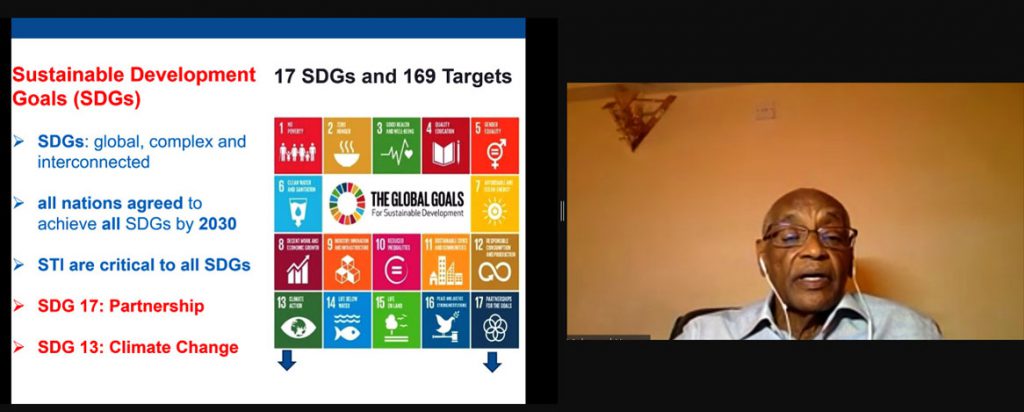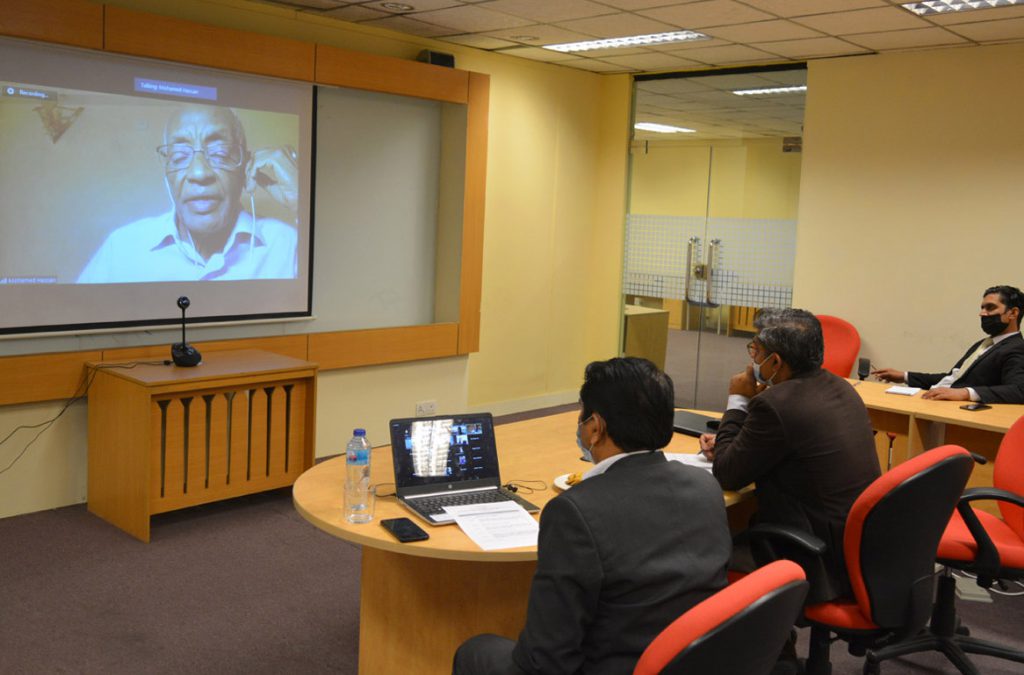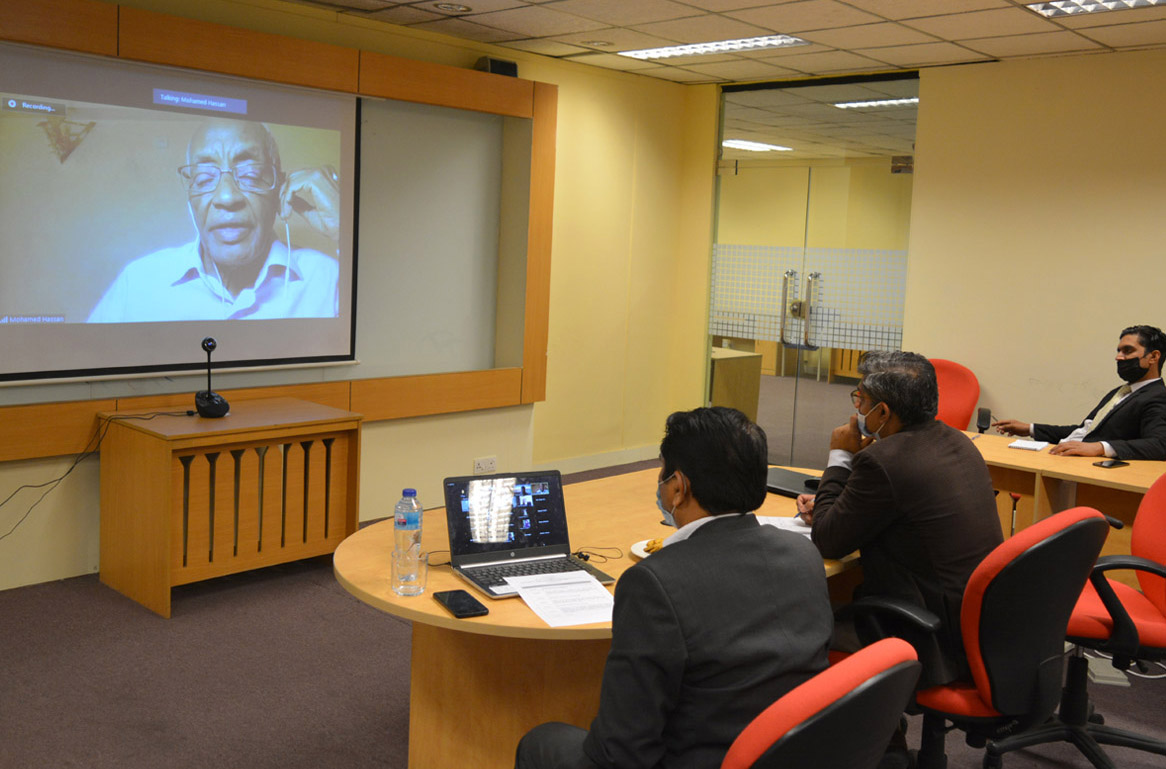Second lecture under 8th session of COMSATS’ Lecture Series on “South – South and Triangular cooperatio n for Socio-economic Development in the South” was delivered by Prof. Dr. M. H. A. Hassan, President of Council, The World Academy of Sciences (TWAS), Italy.
n for Socio-economic Development in the South” was delivered by Prof. Dr. M. H. A. Hassan, President of Council, The World Academy of Sciences (TWAS), Italy.
Shedding light on the concept of Science Diplomacy during his lecture entitled ‘Science Diplomacy and Scientific Migration’, Prof. Hassan stated that three trends helped shape this concept:
- passion of scientists to collaborate with the best in their field;
- use of scientific tools to improve relations between countries having politically strained relations; and
- need for global partnership in STI to achieve SDGs.
He was of the view that Science Diplomacy and science, technology and innovation (ST&I) are essential for the achievement of Sustainable Development Goals (SDGs) by 2030. He deemed Paris Agreement on Climate Change (2016) a great example of science diplomacy where 195 countries pledged to limit global warming to two degrees Celsius. He also hailed Mission Innovation (MI), a global initiative of 24 countries and the European Commission, committed to double public investment in clean energy R&D. To that effect, it was informed, a group of prominent private investors pledged to invest in clean energy technologies to help ensure scaling and commercialization of best innovations with real impact on climate change.
‘TWAS-AAAS Science Diplomacy courses’ was highlighted as an effective programme aime d at bringing together scientific, policy making and diplomatic communities to jointly address critical transboundary issues and publish case studies, as well as build capacity of young scientists in concept and practice of science diplomacy, through interactions with science diplomacy ambassadors.
d at bringing together scientific, policy making and diplomatic communities to jointly address critical transboundary issues and publish case studies, as well as build capacity of young scientists in concept and practice of science diplomacy, through interactions with science diplomacy ambassadors.
Prof. Hassan also detailed the concept of ‘International Scientific Migration’ that was shaped by war, conflict, terrorism, climate change, disasters, poverty, etc. He informed that according to UNHCR, about 80 million people were forcibly displaced by the year 2019; a significant fraction of which consists of scientists, teachers, engineers, medical doctors, and students.
It was informed that to help save the refugee scientists, a Workshop was organized by TWAS, National Institute of Oceanography and Applied Geophysics (OGS), and Euro-Mediterranean University (EMUNI), in Trieste, during March 2017. Fifty participants, including policymakers, science leaders, diplomats, refugee administrators, and refugee scientists from 20 countries in Europe and the Middle East/North Africa region participated in the workshop. Challenges and opportunities being faced by refugee scientists were discussed during the workshop and some useful recommendations were made to help cater them.
‘Links for @risk scientists’ was mentioned as an another programme launched by European Commission to help refugee scientists find suitable jobs, match-making of talented refugee scientists with EU institutions, and providing competitive grants.






